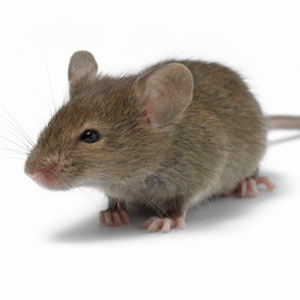PESTUK Mice in Enfield
In Pests
Mice in Enfield
If you can smell a strong ammonia scent, or have noticed small droppings or gnawing marks or have heard scurrying during the night it is possible you have a mouse problem. Mice in Enfield are a common pest problem that PEST UK deal with at private residences and in business addresses.
Mice are an extremely adaptable pest. Changing there behaviour to fit in with the environment they are in. House mice will consume food meant for humans or pets. They will contaminate food-preparation surfaces with their faeces, which can contain the bacteria that causes food poisoning (salmonellosis). People are more tolerant of mice than rats although they can carry the same diseases as rats and are more likely to transmit such diseases, as they are bolder and more curious. Coming into closer contact with food, cutlery and work surfaces. Their constant gnawing will also cause damage to structures and property.

Mice in Enfield can be treated by PESTUK
Treatment of Mice
The control of mice involves sanitation, mouse proof construction and population reduction. The first two are good as preventive measures. When a mouse infestation already exists, some form of population reduction is almost always necessary. Reduction includes trapping and poisoning. Trapping will only reduce a mouse population and will rarely eliminate it completely. Because they breed quickly elimination is the desired result. Poison baiting is the quickest way to deal with a mouse infestation. The right type of bait in the right locations has to be used for the whole population to feed on the bait for it to be successful. Mice are territorial and if the bait is not in a mouse’s territory then it won’t take the bait. Our technicians will examine the property and determine the correct places for baits to be placed.
When we treat a mouse infestation it will be treated with one of the following baits:
- Sorexa D which is a bait, (canary seed), coated in the poison Difenacoum
- RACO FORCE PASTE, that contains the poison Brodifacoum
- Raco*, which contains the poison Difenacoum
- Sorex Brodifacoum Rat and Mouse Bait.
Mice are surprisingly more resistant to poisons than rats or other rodents. They do not need much food and extract all the moisture from the food they eat. Mice in fact eat only 1/20 th to 1/10 th of an ounce per day. The baits and poisons we use are widely recognised as the best available for the complete eradication of a mouse infestation. The technician will make at least 2 visits. On the 2nd visit he will pick up the bait & any available bodies for disposal.
Biocide Treatment
If mice have made a nest in the loft then this can result in the insulation being contaminated with their droppings and urine. Contaminated insulation can cause serious health hazards for you and your family. We recommend that this is carried out after a treatment.
Rodents cause damage to insulation as well resulting in the insulation not functioning properly. At PEST UK we offer a service to remove this insulation and install fresh new insulation.
We firstly remove and dispose of the old insulation in a safe professional manner. The technician will then vacuum droppings which are present in the loft space and a biocide spray to make sure the loft is thoroughly disinfected.
The final process will be to place new insulation into the loft. The prices include all materials. For lightly contaminated lofts we offer a Biocide treatment only.
Below is a a breakdown of the price to carry out this service:
- 1-2 bedroom property – £1200.00 + VAT
- 3 bedroom property – £1500.00 + VAT
- 4 bedroom property – £1800.00 + VAT
- Biocide treatment only – £65.00+ VAT
PESTUK cover a wide area of England including Berkshire, Middlesex, Surrey, Oxfordshire, Hampshire, Buckinghamshire & West London
PESTUK (Enfield)
Tel: 020 8226 4350
To find out more about Mice & to check a pest control companies legitimacy and knowledge of safe pest control please visit the BPCA, PEST UK are full members of the BPCA and observe the Associations Code of Practice and Code of Conduct.

